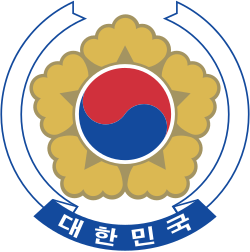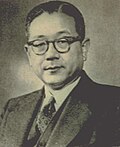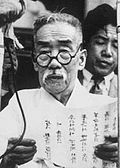| Vice President of the Republic of Korea | |
|---|---|
 | |
| Appointer | Direct election |
| Term length | 4 years |
| Precursor | None |
| Formation | 24 July 1948 |
| First holder | Yi Si-yeong |
| Final holder | Chang Myon |
| Abolished | 15 June 1960 |
| This article is part of a series on |
 |
|---|
The Vice President of the Republic of Korea was the second highest executive office in South Korea. It was established upon South Korea's founding on 24 July 1948, and abolished in 1960.
Contents
The following is a list of vice presidents of South Korea since its independence.
To avoid confusion, all the names on this list follow the Eastern convention (family name first, given name second) for consistency.





